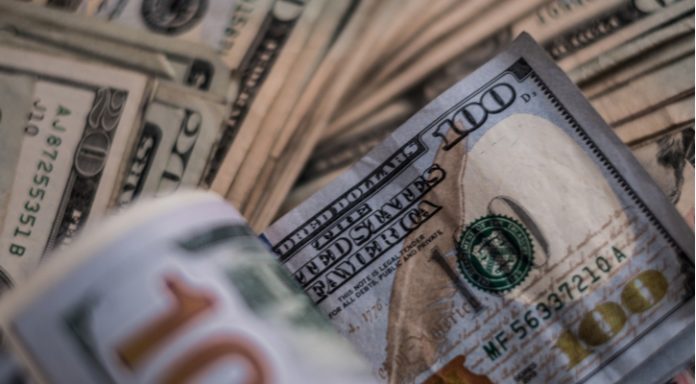The pound sunk to its lowest level versus the dollar since June last year on Wednesday. Brexit, and uninspiring U.K. inflation data combined with increased geopolitical tensions and strong US retail sales sent the pound US dollar exchange rate to a low of US$1.2662.
| What do these figures mean? |
|---|
|
When measuring the value of a pair of currencies, one set equals 1 unit and the other shows the current equivalent. As the market moves, the amount will vary from minute to minute. For example, it could be written: 1 GBP = 1.28934 USD Here, £1 is equivalent to approximately $1.29. This specifically measures the pound’s worth against the dollar. If the US dollar amount increases in this pairing, it’s positive for the pound. Or, if you were looking at it the other way around: 1 USD = 0.77786 GBP In this example, $1 is equivalent to approximately £0.78. This measures the US dollar’s worth versus the British pound. If the sterling number gets larger, it’s good news for the dollar. |
U.K. inflation, as analysts had predicted, ticked higher in July to 2.5% year on year, up from 2.4% in June. This is the first time that inflation has moved higher this year. However, the rise has been mainly attributed to higher prices at the petrol pumps and transport costs. Core inflation which doesn’t include volatile items such as fuel remained constant at 1.9%. Analysts believe the price of oil has now peaked, meaning that inflation is unlikely to rise further. Yesterday’s data is not going to encourage the Bank of England to rush towards hiking interest rates. As a result, the pound weakened.
| Why do raised interest rates boost a currency’s value? |
|---|
| Interest rates are key to understanding exchange rate movements. Those who have large sums of money to invest want the highest return on their investments. Higher interest rate environments tend to offer higher yields. So, if the interest rate or at least the interest rate expectation of a country is relatively higher compared to another, then it attracts more foreign capital investment. Large corporations and investors need local currency to invest. More local currency used then boosts the demand of that currency, pushing the value higher. |
The pound will continue to be in focus today as investors look towards U.K. retail sales for further clues on the health of the British economy. With wage growth slowing and inflation elevated consumers will still be feeling the squeeze on their purses. Analysts are forecasting a slowing of retail sales growth year on year to 2.7% from 3% in June.
With Brexit talks set to begin again data could be overshadowed by any fresh signs of stalemate between the U.K. and Brussels.
Dollar Jumps As Tensions Escalate With Turkey
The dollar soared in the previous session as tensions between Turkey and the US increased. Turkish President Ankara has now put in place short term measures to stop the slide in the Lira. However, he also showed no willingness to back down in the confrontation with Washington, by increasing tariffs on US cars alcohol and cigarettes. The escalation of geopolitical tensions sent investors towards the dollar for its safe haven properties.
The dollar also received a boost from US retail sales which were much higher than analysts had been forecasting. US retail increased 0.5% versus the 0.1% analysts predicted. These figures were yet further evidence that the US economy is strong, boosting the dollar.
| Why does strong economic data boost a country’s currency? |
|---|
| Solid economic indicators point to a strong economy. Strong economies have strong currencies because institutions look to invest in countries where growth prospects are high. These institutions require local currency to invest in the country, thus increasing demand and pushing up the money’s worth. So, when a country or region has good economic news, the value of the currency tends to rise. |
Today investors will continue assessing developments in Turkey, with housing starts and initial jobless unlikely to provide much of a distraction.
This publication is provided for general information purposes only and is not intended to cover every aspect of the topics with which it deals. It is not intended to amount to advice on which you should rely. You must obtain professional or specialist advice before taking, or refraining from, any action on the basis of the content in this publication. The information in this publication does not constitute legal, tax or other professional advice from TransferWise Inc., Currency Live or its affiliates. Prior results do not guarantee a similar outcome. We make no representations, warranties or guarantees, whether express or implied, that the content in the publication is accurate, complete or up to date. Consult our risk warning page for more details.
This article was initially published on TransferWise.com from the same author. The content at Currency Live is the sole opinion of the authors and in no way reflects the views of TransferWise Inc.





